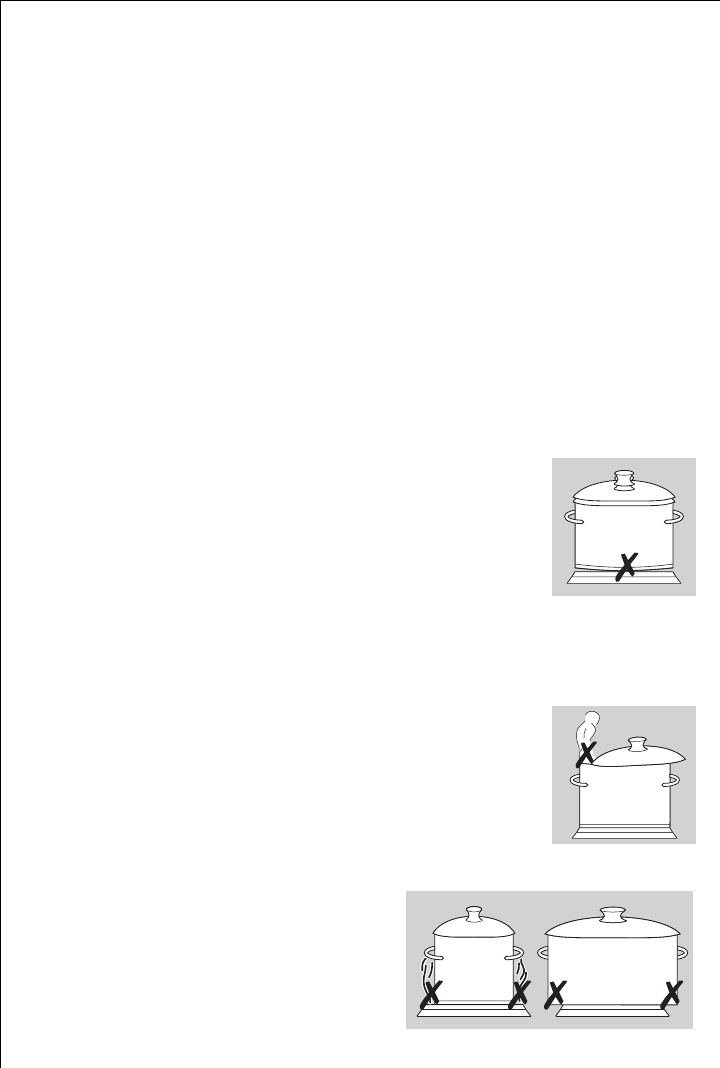
Operating Instructions
62
Uses, Tables and Tips
Pans
The better the pan, the better the results.
• You can recognise good pans by their bases. The base should be as
thick and flat as possible.
• Pay particular attention when buying new pans to the diameter of
the base. Manufacturers often give only the diameter of the upper
rim.
• Pots with aluminium or copper bases can cause metallic discolouring
on the ceramic glass surface, which is very difficult or impossible to
remove.
• Do not use cast iron pans or pans with a rough, burred or damaged
base. This can produce permanent scratching if the pan is slid across
the surface.
• When cold, pan bases are normally bowed slightly
inwards (concave). They should never be bowed
outwards (convex).
• If you wish to use special types of pan (e.g. a pres-
sure cooker, simmering pan, wok, etc.), please ob-
serve the manufacturer's instructions.
2
Energy saving tips
You can save valuable energy by observing the following points:
• Always position pots and pans before switching on the cooking zone.
• Dirty cooking zones and pan bases increase power
consumption.
• Whenever possible always position the lids firmly
on pots and pans to cover completely.
• Switch off the cooking zones before the end of the
cooking time to use the residual heat such as to
keep foods warm or for melting.
• The base of the pan should be the
same size as the cooking zone.
• Using a pressure cooker reduces
cooking times by up to 50%.


















